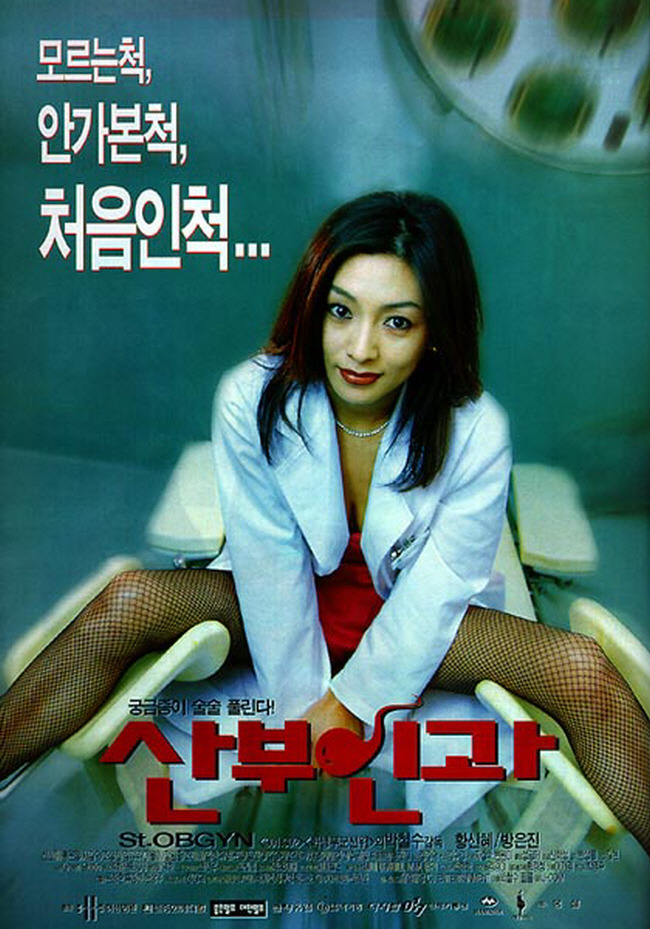 (“Pretend not to know”, “Pretend not to go”, “Pretend it’s the first time”. Push! Push! {1997}. Source)
(“Pretend not to know”, “Pretend not to go”, “Pretend it’s the first time”. Push! Push! {1997}. Source)
This was the most read society news story on Naver last week, undoubtedly because of the recent announcement that the pill is to be made prescription only (a similar article was #5), which will naturally require more visits to OBGYNs. I have my own article about that coming out in Busan Haps next month (update: here it is!), but in the meantime see here, here and here for further details, as well as Korean Gender Reader posts from June.
Without discounting the genuine negative experiences outlined below, for the sake of balance let add that my wife has had no problems with those OBGYNs she’s dealt with since her first pregnancy, nor this 19 year-old student who wrote about her first visit to a clinic for her university newspaper (although it’s true she was given some strange and/or unnecessary tests). Also, it seems somewhat naive of patients to be surprised at questions about their sexual experience, and a little churlish of them to complain about them.
Update — in addition to many helpful, practical reader comments on this post below, and on the previous one about the student’s visit, let me recommend this one by a friend on Facebook:
…to be honest, I think most women expect a trip to the gyno to be awkward, that’s par for the course. However, many of the questions mentioned in the article were definitely way out of line. I’ve come across some less than sensitive (aka prejudiced and or judgmental) docs here.. I just assumed their overly-direct statements/questions were just a translation issue. Obviously not!
One disheartening aspect of women’s clinics is that you have to speak to a nurse (or sometimes just the receptionist) first, often in crowded reception area, to explain why you’re there. They often ask for all your symptoms, check your weight and blood pressure and when you had your last period in front of countless strangers. One clinic I went to had an LCD screen with the waiting patients listed in order of their turn.. including the reason why there were there… So much for privacy! It just adds another layer of humiliation to an already uncomfortable situation.
That being said- there are some amazing gynos here. I hope these problems can be properly addressed- no one should have to feel ashamed in front of their doctor. The danger here is that women will stop seeing doctors about their gynecological/sexual health out of fear of embarrassment and risk greater health problems.
“성경험 유무는 왜…? 굳이 그것까지” 굴욕의 진료, 산부인과
“Why do they ask about sexual experience? Is that really necessary?” Humiliating Treatment at OBGYN Clinics
엄지원 / Uhm Ji-won, The Hankyoreh, 2 July 2012
여성이 불편한 산부인과 / Women find gynecology clinics uncomfortable
접수대부터 진료·시술까지 / From reception to treatment and surgery
의료진 노골적 발언에 민망 / OBGYNs make suggestive, embarrassing comments
사전피임약 처방전 필요한데… / The pill requires a prescription…
여성들 심리적 부담 커 고민 / Psychological pressure on women increases
환자 배려 의료지침 등 필요 / OBGYNs need guidance on bedside manners
 지난 6월 정부는 사전피임약을 전문약으로 분류하는 약사법 개정안을 발표했다. 이 법안이 국회에서 통과되면 여성들이 산부인과를 찾을 일이 더 많아질 수 있다. 이를 두고 여성들은 산부인과에 가는 것 자체가 눈치 보이는 사회 분위기를 지적한 바 있다.
지난 6월 정부는 사전피임약을 전문약으로 분류하는 약사법 개정안을 발표했다. 이 법안이 국회에서 통과되면 여성들이 산부인과를 찾을 일이 더 많아질 수 있다. 이를 두고 여성들은 산부인과에 가는 것 자체가 눈치 보이는 사회 분위기를 지적한 바 있다.
This June, the government announced that it was considering amending the Drugs, Cosmetics, and Medical Instruments Law to reclassify the pill as a prescription medicine. If passed by Congress, it will mean women will have to visit OBGYN clinics much more often. In light of this, women have been pointing out the [bad] atmosphere at them.
한국여성민 우회가 산부인과 진료 경험이 있는 여성 210명을 상대로 설문조사한 결과는 ‘외부의 시선’ 못지않게 산부인과 진료 자체에 대한 여성들의 두려움이 실제로 광범위하게 퍼져 있다는 사실을 확인해준다. 설문 특성상 응답자의 신상과 구체적인 피해 일시·장소 등을 밝히진 않았지만, 여성들은 산부인과에서 겪은 수치와 불편을 설문지에 빼곡히 적었다.
Korean Womenlink conducted a survey of 210 women who had received treatment at OBGYN clinics, and the results confirmed not just the endurance of public stereotypes that all women visiting OBGYN clinics had STDs, but also that women’s fears in visiting them were well-founded. The survey was anonymous, and respondents were asked to provide no details of the times or places in which they’d been made to feel embarrassed or humiliated, but many still felt compelled to write a great deal about their negative experiences.
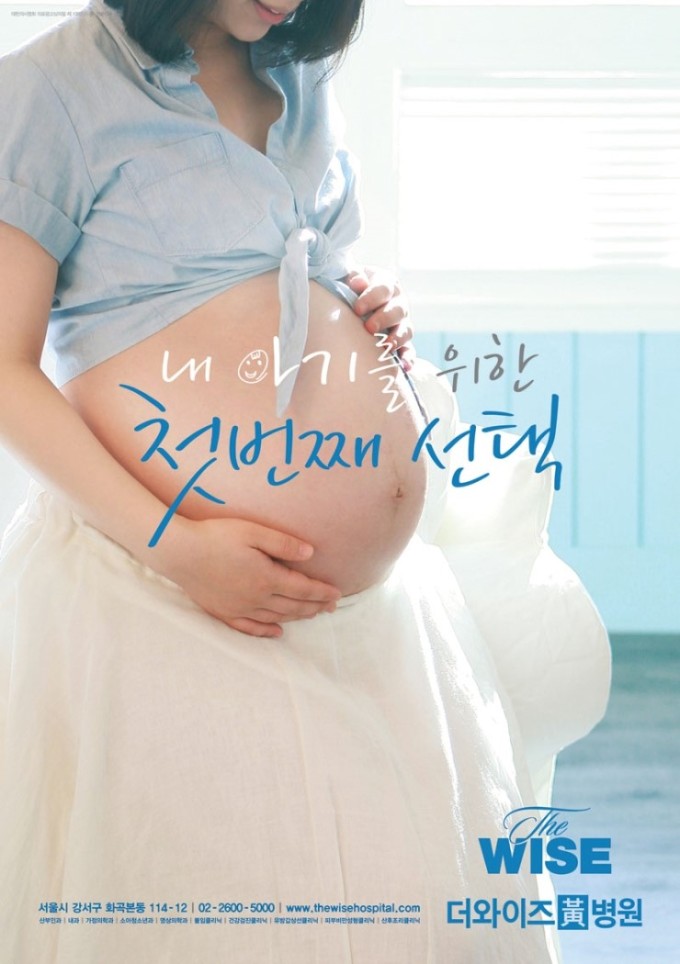 (Source)
(Source)
신지은(가명·36)씨는 얼마 전 산부인과에서 느낀 굴욕감이 생생하다. 아이를 낳고 정기검진차 방문한 신씨에게 의사는 은근히 ‘수술’을 권했다.
Shin Ji-eun (not her real name), 36, vividly remembers visiting a clinic for a regular check-up after her child was born, where the doctor implied she should have surgery:
“출산을 한 뒤니 부부관계를 오래 유지하고 싶으면 이참에 수술을 하라”고 말했다. 그가 권한 것은 여성 성기를 성형하는 수술이었다. “배려인지 희롱인지 알 수 없는 제안”이었다고 신씨는 말했다.
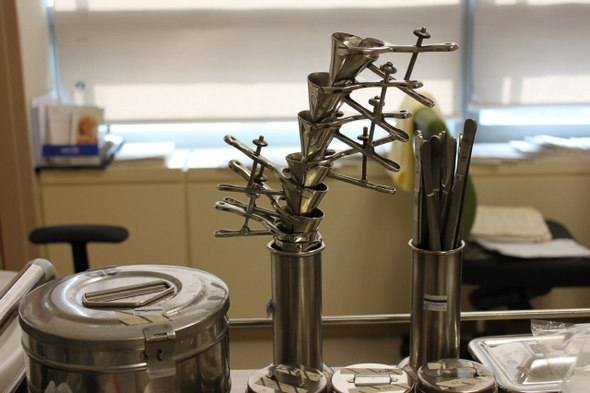 “After having a baby, and seeing as you’re already here, you should have surgery on your genitals for the sake of your married life”, the doctor said [James – what kind of surgery isn’t specified]. “I didn’t know whether to take it as a joke or a serious suggestion” Ji-eun said.
“After having a baby, and seeing as you’re already here, you should have surgery on your genitals for the sake of your married life”, the doctor said [James – what kind of surgery isn’t specified]. “I didn’t know whether to take it as a joke or a serious suggestion” Ji-eun said.
실제로 설문조사에 응한 여성들은 진료가 시작되는 접수대에서부터 낙태경험 또는 성경험을 묻는 수치스런 질문을 받았다고 증언했다. 어느 여성은 “진료 접수 때 ‘냉이 많아져서 병원에 왔다’고 했더니, 접수대 간호사가 큰 소리로 ‘성병이네요’라고 말해 매우 불쾌했다”고 적었다.
Respondents to the survey reported being asked embarrassing questions about their sexual experience and having abortions even as soon as arriving at the reception desk. One woman said “I went to the OBGYN clinic because I was having a heavy vaginal discharge, and the nurse at the desk loudly said ‘Oh, you must have an STD!’, which mortified me.”
진료 시작 뒤에도 수치심을 주는 의료진의 발언이 이어졌다고 응답자들은 적었다. 특히 “성경험이 있느냐”고 묻는 의료진의 태도가 당혹스러웠다고 여성들은 밝혔다. 어느 여성은 “성경험이 없다”고 답했다가 “검사할 때 번거롭다. 솔직히 말하라”는 의사의 말을 들었다. “그 뒤로 가급적 산부인과에 가지 않는다”고 이 여성은 밝혔다.
The shaming experiences continue after treatment starts too, because of doctors’ comments. In particular, after being asked if she had sexual experience, and replying that she didn’t, one woman found her doctor’s reply – “Be honest. Otherwise the examination will be more complicated” – perplexing, and said she’d rather not visit an OBGYN again.
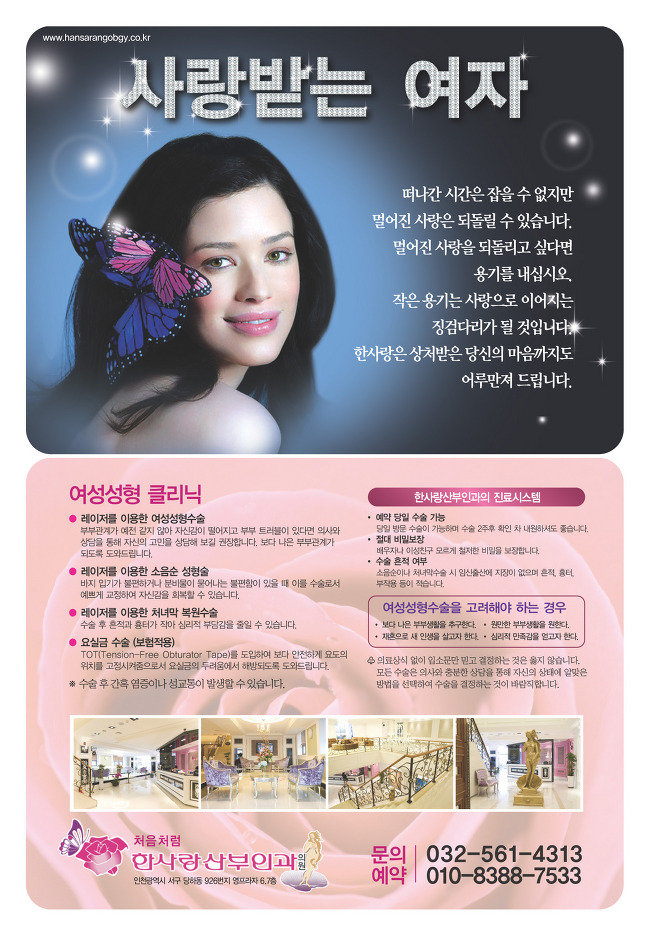 (Source)
(Source)
의료진이 성경험 여부를 묻는 것은 관련 진료에 필수적인 정보이기 때문이다. 그러나 성경험이 있든 없든 “왜 그런 정보가 필요한지 사전 설명 없이 다짜고짜 물어 불쾌했다”는 게 처음 산부인과를 방문한 여성들의 이구동성이다. 여성민우회 조사를 보면, 산부인과 방문 당시 성경험이 있었던 경우는 69.5%, 없었던 경우는 29.5%였다.
Before being treated, patients need an explanation of why being asked about their sexual experience was necessary. Without that, many women reported, they felt very embarrassed on their first visits to clinics.
Of the respondents, 69.5% had prior sexual experience, and 29.5% didn’t.
Top Left — Of 210 Respondents: 35.2% had no negative experiences, 64.3% did, and 0.5% didn’t reply.
Top Right — Of the 64.3% of women who reported negative experiences: 56.3% were related to fears and anxieties about their treatment; 30.4% to public perceptions [of OBGYN patients]; 3.7% to questions about STDs; 3.0% to costs of treatment; and 6.7% to other things.
Bottom — Age at first visit to an OBGYN
자궁경부암 검사를 받으러 갔던 어느 여성은 “결혼 안 했으면 처녀막이 상할 수 있으니 검사하지 말라”는 의사의 말을 들었다. 자신을 배려하는 듯하면서도 ‘처녀성’ 운운하는 발언에 수치심을 느꼈다고 응답자는 적었다. “몇번 경험해봤나”, “최근엔 언제였나”, “첫 경험이 언제인가”, “남자친구 말고 섹스 파트너가 있나” 등을 아무렇지 않게 묻는 일은 점잖은 축에 속했다. 이들이 기록한 의료진의 어떤 발언은 그대로 옮기기에 민망할 정도다.
 One woman who visited in order to be examined for cervical cancer was asked if she was married, “because if you haven’t, then you shouldn’t receive an examination that will break your hymen”; while possibly the doctor was just being considerate about her virginity, the woman still felt ashamed and embarrassed. Other embarrassing questions, like “How many times have you had sex?”; “When was the last time you had sex?”; “When did you lose your virginity?”; and “Do you have another partner in addition to your boyfriend”, don’t even begin to compare to what some doctors asked patients, which they reported were too shameful to write down in their surveys (source, right).
One woman who visited in order to be examined for cervical cancer was asked if she was married, “because if you haven’t, then you shouldn’t receive an examination that will break your hymen”; while possibly the doctor was just being considerate about her virginity, the woman still felt ashamed and embarrassed. Other embarrassing questions, like “How many times have you had sex?”; “When was the last time you had sex?”; “When did you lose your virginity?”; and “Do you have another partner in addition to your boyfriend”, don’t even begin to compare to what some doctors asked patients, which they reported were too shameful to write down in their surveys (source, right).
“성기 모양이 참 예쁘다. 남편이 함부로 하지 않는가 보다.” “가슴이 작아서 사진이 찍히려나 모르겠네.” “어린데 왜 산부인과에 왔을까?” 심지어 체모가 많은 것을 보고 “남편이 좋아했겠다”는 이야기를 들은 경우도 있었다.
“Your vagina is very pretty. Your husband wasn’t as rough as most men”; “Your breasts are so small I’m not sure they will even show in the mammogram”; ” You’re so young, why are you visiting an OBGYN?” and even, after seeing that a patient had lots of pubic hair, commenting that “Your husband must like it” are among some of the stories about doctors that respondents did provide.
환자보다 의사 중심으로 꾸며진 진료 환경에 대한 여성들의 성토도 이어졌다.
In general, respondents felt that the treatment environment was designed with doctors rather than patients in mind.
다리를 위로 향한 채 눕게 돼 있는 산부인과의 ‘진료의자’를 응답자들은 ‘굴욕의자’, ‘쩍벌의자’로 부르며 불쾌감을 표시했다. 한 여성은 “진찰대에 다리를 벌리고 올라가는 것 자체가 매우 불쾌해 다시 가고 싶지 않다”고 적었다.
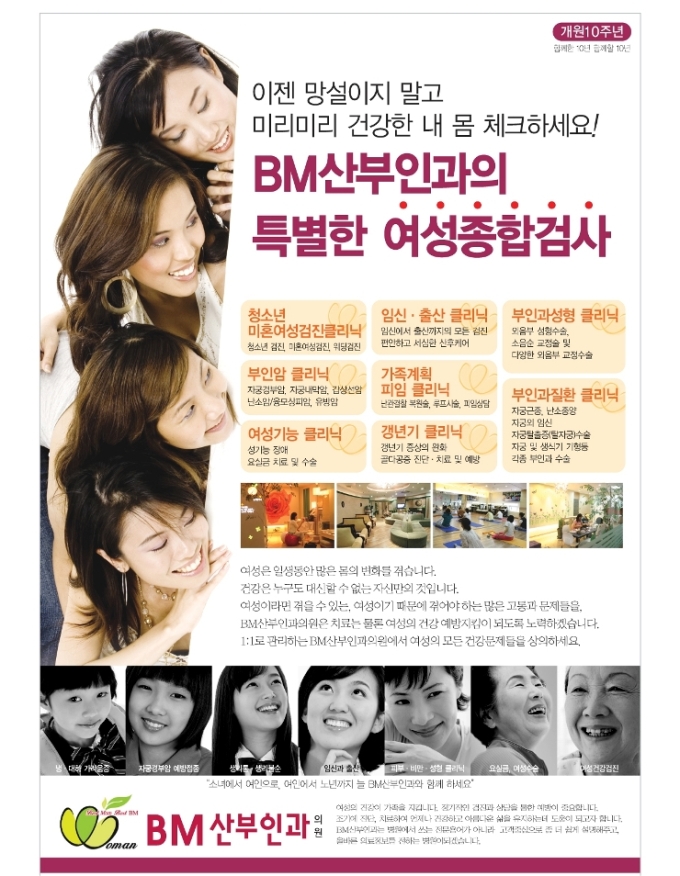 (Source)
(Source)
Women showed how upset they were by describing the treatment chair, in which patients lie with their legs in stirrups, as the “Chair of Shame”, or the “Spreadeagle Chair”. One woman wrote “I never want to go in that chair again. Having to spread my legs like that is very upsetting.”
자궁암 검사를 위해 병원을 찾았던 여성은 “의사가 들어오기 전 속옷을 벗고 다리를 벌린 채 준비했고 뒤이어 들어온 의사는 아무 설명도 없이 진료도구를 질 내부에 집어넣어 검사했다”고 불쾌감을 드러냈다.
Another woman who went to a hospital to be checked for cervical cancer wrote “Before the doctor came, I took off my underwear and got up and spread my legs, and when he arrived he just quickly put an instrument inside me, without any warning or explanation.”
‘진정으로 산부인과를 걱정하는 의사들 모임’의 최안나 대변인은 “산부인과 진료는 특히 예민한 분야이므로 성경험 여부 등 구체 정보가 왜 필요한지, 진료 과정은 어떻게 진행될 것인지 상세히 설명하고 의견을 구하는 건 당연한 절차”라며 “산부인과의 진료 서비스가 많이 나아지고 있다고 해도 여전히 일부 환자 눈높이에 부족한 점이 있다”고 말했다.
Choi Ahn-na, a spokesperson for the Korean Gynecological Physicians’ Association (GYNOB) [James — a notoriously anti-abortion group of OBGYNs. See here for more information about them] explained that “Gynecology and Obstetrics are very sensitive branches of medicine, for which it is both normal and essential for OBGYNs to have detailed information about patients, as this determines both the treatment type and how it’s administered. However, while OBGYNs have improved their services a great deal, it is also true that remaining weak spots need to be dealt with, as well as how things looks from patients’ perspectives.”
 (Source)
(Source)
여성민우회는 이달 중 1000여명에 대한 실태조사 최종 결과 분석이 끝나면 전문의·보건전문가 등과 간담회를 열어 환자를 배려하는 산부인과 의료 지침을 만들어 배포하는 등 ‘산부인과 바꾸기 프로젝트’를 이어갈 계획이다.
Continuing its “Transform OBGYN Clinics Project” [James — Yes, this is the first time it’s been mentioned in the article], this month Womenlink is following-up by surveying 1000 women. After analyzing the results with health specialists, it will produce and distribute a guide for OBGYNs for dealing with patients.
김인숙 한국여성민우회 공동대표는 “왜 여성들이 산부인과에 가는 데 부담감을 느끼는지 구체적으로 확인해 앞으로 더 나은 산부인과 진료 문화를 만들어 갈 것”이라고 밝혔다.
Kim In-sook, a co-spokesperson of Womenlink, said “We will determine exactly why women feel so stressed about going to clinics, with the aim of making a better and more welcoming environment for them there.”
<한겨레>는 ‘여성이 불편한 산부인과’를 ‘여성이 행복한 산부인과’로 바꾸기 위한 제보와 의견을 받아 관련 보도를 이어갈 예정이다.
(Editor): In order to make women feel comfortable with visiting OBGYN clinics, The Hankyoreh will continue to receive and report on women’s opinions and experiences of them.

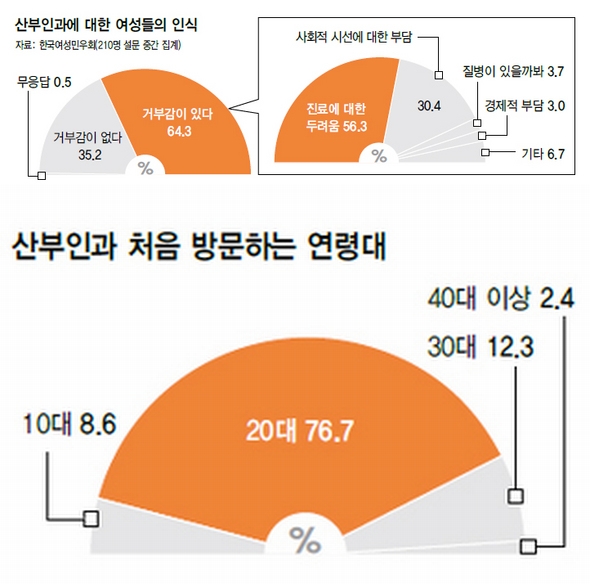

Very interesting article. Thank you.
LikeLike
You’re welcome.
Now, back to watching Grey’s Anatomy in bed with my wife! :)
LikeLike
Sounds to me like there’s a good chance they need some “ease-in” to the questions about sexual history. I found those questions to be very tension-inducing the first few times they were asked, and I’m feminist, sex-positive, and from a society that (I think) talks about that type of thing more frequently. In addition, if the doctors themselves aren’t comfortable with it for social or other reasons, they may come across as brusque in an attempt to rush through the questions. These things are going to make for an unpleasant experience. I can only imagine that would be even worse if I had rarely talked about those things to anyone. And if women rarely talk about this kind of thing/you don’t see appointments depicted in TV shows/described in sex ed classes/etc., how are they supposed to know what to expect?
Also, where I live, when you get an OB/GYN, it’s standard to be asked if you’d prefer a male or female doctor. Almost all women say they’d prefer a woman, and the majority of these exams are done by female OB/GYNs as a result. (If an exam IS done by a male doctor, a female attendant is always in the room.) I think I recall hearing that in Korea, most OB/GYNs are male. Is this true? If so, it seems like it’d make things even more awkward (just in general, and societally in addition).
Finally, the beds suck here, and if they’re the same there, I really question whoever designed them. For example, most have these awful bare metal stirrups that were clearly designed to induce foot cramps. ONE bed I’ve encountered had the stirrups covered in cushions, but generally they don’t. So you endure this exam that for many (not all) women is very painful, invasive, and uncomfortable, while pushing your feet into torture devices. Ugh.
At least in the last decade or two they’ve started warming the jelly tubes in special warming devices so you’re not also chilled by it, but I don’t know if that’s caught on there.
Anyway, I’m sure they have plenty to complain about.
LikeLike
You’re quite right, about all of that. I admit that I may have been projecting a little when saying it was naive to be embarrassed at some questions, as I’ve always been pretty blasé and no-nonsense about sexual matters myself. Also, a friend has just pointed out to me that – OMG – it’s actually routine to be asked by a nurse or receptionist for reasons for one’s visit, symptoms etc. in the waiting room just in order to see the OBGYN, which of course is completely unprofessional (and I’d be embarrassed to discuss those in public like that too).
LikeLike
You’d think they might have the common sense to realize that women might be made uncomfortable by those questions when being asked verbally, and might perhaps be more comfortable answering multiple choice questions on a short form, with a note at the top that the results are confidential, are shredded immediately after the examination, and that honesty helps the doctor to give patients the proper treatment. And of course, not having a name form on the paper; instead, having the patient hand it to the doctor. I mean, when you’re dealing with a society where women feel that uncomfortable talking about it with their doctors… and uncomfortable with doctors generally.
I’ve had wonderful doctors here, but also doctors whom I felt were about the least personable human beings I’d ever met. (One thing I’ve learned is that plenty of hospitals have a senior resident nicknamed “Malig”–short for “Malignancy”–and the administrators tend to advise other interns to keep out of those guys’ way, and avoid confronting them on their nasty treatment of colleagues and patients alike. When guys like that get out into the public health care system…)
As for the male vs. female OBGYNs, I have no idea to be honest, but I do know that the few Korean women I’ve known who related positive experiences with OBGYNs to me have usually have started by noting that the doctor was a woman; the negative experiences aren’t always the reverse–sometimes I’ve heard negative stories about the odd female OBGYN, in other words–but I’ve almost never heard a positive story about a male OBGYN. That may well just be because of the comfort level/preference of the patient, of course: it’s not to say all male OBGYNs are bad.
But, yeah, I’ve also personally been told stories of doctors following up sexual history questions with (frankly unnecessary) marital status questions. The comments on pubic hair abundance and vaginal beauty are just crazyass, but to be honest, I would not be surprised if they were true. I’ve known enough female doctors here to have heard all kinds of sexist shit being said by supervisors to younger female interns and residents; it would hardly surprise me if those attitudes occasionally carried over into the examination room.
While I’m on the subject of medical treatment of naughty bits, I will note one thing: my urologist/dermatologist told me the vast majority of his patients in the morning are men under age 50, who are having problems with prostatitis. (Which means their problem is too much sitting at a desk job, not STDs, though I’ve run across similar, if less anxiety-inducing, perceptions of men going to a urologist.)
Thinking of the singularly bizarre prostate exam that particular (otherwise pretty damned good) doctor gave me, I’ll note one more thing: some generally decent and well-meaning doctors are just very awkward people: ten years of studying like hell, and five years of being a slave resident chained to a hospital, simply don’t do much for your people skills. Especially when the hospital departments are like mini-fiefdoms, and are dysfunctional to a degree you might not believe. My ex is now a resident in the US, and she told me, both impressed and shocked, about how a verbally abusive doctor-instructor at the teaching hospital she’s at got fired after several residents complained. She said that in a Korean hospital context, the behaviour that got the instructor fired would have been considered within the range of “normal.” It’s a bit like in the military, I suppose: if you’re just with other soldiers for a few years, readjusting to civilian life is hard: but being surrounded by doctors doctors doctors for years on end, and then remaining in that world (by all accounts a very conservative one, here in Korea) and having to try interact with “normals” must be an interesting and unusual task. I’m betting some of the comments are real, but not badly intentioned, which is not to excuse them of course.
LikeLike
Lordy, the yearly is uncomfortable enough without the random commentary. I feel for these ladies. And, while the questions may be necessary, these doctors seriously need to take some interpersonal communications classes. I mean, if *I’m* more tactful than the examples given…that’s a serious problem!
LikeLike
One of the two times I’ve been to an OB/GYN in Korea was embarrassing enough that I haven’t wanted to go back…the doctor made a lot of unnecessary comments during the examination about my body that were not health-related and that caused the nurses to giggle. She also lied to me and offered me a “free” ultrasound to…I dunno…check my uterus? It wasn’t really explained but since it was free I said, “Sure, why not.” It ended up costing me $40, and the receptionist accused ME of lying about what the doctor had said.
The sexual history questions are necessary, but sex education in this country is poor enough that women do need to be led into it gently. And you can tell the difference between a doctor asking for routine information and a doctor staring critically as they ask in a judgmental tone haha. Also the doctor that made that comment about the hymen ‘breaking’ is ridiculous, as is the one who said something about a husband being rough…Hymens don’t break, they just stretch, and you can’t tell by looking at someone if they’ve had sex or not. Sex doesn’t change the shape or appearance of a vagina or vulva unless the women is being abused or raped…it’s distressing to see even OB/GYNs spreading that kind of disinformation. :(
LikeLike
I’m worrying now that I’m too apologist in this post…perhaps I’m compensating for how critical I am in my Busan Haps article! :)
I hear you about the hymen breaking=loss of virginity myth as well – I first read about it in Against Our Will: Men, Women and Rape by Susan Brownmiller myself, in which I think she says (I don’t have a copy here sorry ㅠㅠ) something like 9 in 10 first sexual experiences aren’t accompanied by tearing and bleeding, yet still the myth persists. Like you say, it’s distressing that even OBGYNs are perpetuating it.
For the record, my wife things the most egregious doctor’s comments in the article are simply made up for the sake of a good story. And seeing how my times I’ve encountered that in the Korean media, I can’t discount the possibility!
LikeLike
Oh I didn’t read you as apologist at all – I too thought the article played a little heavy on the shock and awe of an OB/GYN asking about sexual history, lol. I just think there might have been some subtext in the article that wasn’t explicitly mentioned – e.g. the shame was more about the tone of the doctor than the question itself. And I hope your wife is right about the doctors’ comments! Although I wouldn’t be surprised if there were a lot of doctors that really did say things like that. :(
LikeLike
After a female friend who had never visited the gynecologist before she got married at 28 (만으로 real age) was diagnosed with a large ovarian tumor (she recovered fine, but the doctor literally told her that if she’d waited two years to get married she would have died), I became interested in the various sociological phenomena that discourage women from visiting the ob/gyn, and initially had planned to make that the focus of my doctoral dissertation in Medical Sociology (though I’ve been discouraged from doing that until after I get my PhD, and now am instead focused on migrant workers’ health care access in South Korea).
As men, folks like James and I are necessarily limited in our experiences. I’m not entirely sure if a urologist visit is quite analogous (I have prostate cancer in my family, so I started doing those after turning 30), but it does involve some embarrassing questions — often in front of whomever is in the lobby — and some very unpleasant probing. Still, men’s sexuality and women’s sexuality are not treated the same, so I’m not sure how far the empathetic analogy goes.
But I do have experience taking my then-girlfriend (an American who didn’t speak much Korean) to the ob/gyn in Korea and later a non-American friend to Planned Parenthood in the US to get an IUD because it was required as part of a health study she was in. Maybe we got lucky in Korea, but the doctor was trying to be as inoffensive and sensitive as possible. In fact, the questions and the way he asked them did not seem all that different from the Hawaii friend’s experience (she told me about it in detail). Since I was sort of playing translator, the doctor in Korea did ask my then-girlfriend if it was okay for him to ask these sensitive questions through me, and she was fine (actually, I wasn’t, since I didn’t need to know everything).
Nevertheless, even if there are some sensitive doctors out there, there are enough that are not that it is clearly a problem. And not just in ob/gyn or urology settings but other areas, too, but ob/gyn and urology cover such sensitive areas that special care needs to be made.
One of the big problems is that so many doctors simply do not imagine themselves in the patient role. The female reproductive system is “shop” for them and they forget that patients approach it from an entirely different perspective. Thus they ask things insensitively, they fail to protect patient privacy, and they fail to consider why patients may not be initially forthcoming about important things like sexual history, or how to elicit those things in a way that is not unpleasant. Doctor training is a must, especially in ob/gyn settings, and hopefully articles like these will get some of them to sit up and take notice.
But the emphasis on sexual virtue that still lingers will cause many women to clam up about anything they’ve done in their past, and if they’ve done little or nothing, the questions might scare them off from future visits. Clearly, something must also be done for patient training. While waiting for my friend in the Planned Parenthood lobby in the US, I ended up watching a looped video explaining the pros and cons of all the different types of birth control that were offered by PP. Actually, I probably sat through it three times, and eventually kinda sorta knew what I was talking about. The video was well made, focused on the age demographic most represented in the clinic, and was informative while not talking above people’s heads. And men who were there with their girlfriends or wives (or friends) might actually have gotten an idea what women go through if they are the one primarily responsible for the birth control regimen.
But the point I want to make about the video is that that kind of approach could work in a Korean setting. Not just birth control information (though that, too, would be useful) but a looped video about what to expect in a first ob/gyn visit, or what to expect with different types of visits, including why such-and-such questions (e.g., sexual history) are important, the benefits of preventive care, etc. That, and doctor sensitivity training (and a renewed emphasis on patient privacy) could go a long way.
LikeLike
‘Mystery killing in OBGYN clinic’
http://www.koreatimes.co.kr/www/news/nation/2012/08/117_117076.html
“Police will refer the case to the prosecution today, charging Kim with committing manslaughter and abandoning the victim’s body.”
I didn’t think there was such a thing as “manslaughter” in S. Korea? Probably a case where the writer is trying to make Korea sound like it has 1st world laws.
“A police investigation concluded that the physician accidentally killed her without intending to do so, but unanswered points remain, such as why the doctor, with his knowledge of medicine, gave her a mixture of dangerous drugs.”
“Kim’s wife is also suspected of assisting her husband in disposing of the corpse. She claims she didn’t know Kim and Lee were having an affair.”
So why did she assist him?
“According to police, the two were in an extramarital relationship for about a year and she often had such shots from Kim before they had sex, the doctor testified. At around 11 p.m., Lee visited the hospital and Kim allegedly injected a mixture of 13 kinds of sedatives and anesthetics. They then had sex and slept for about an hour. Kim told the police that when he woke up, she was dead.”
Sounds like the woman couldn’t stand having sex with the good doctor unless she was numb.
“Kim told police he visited Lee’s house in southern Seoul several times over the last year, to inject propofol and have sex. Propofol is used as a sedative but intoxication can lead to death, as in the case of Michael Jackson.”
Sounds like a copy cat murder case. The good doctor probably listened to Michael Jackson music while having sex with her while asleep.
““An anesthetist told us that Vecaron is a very strong anesthetic, saying he doubts whether an obstetrician, who has over 10 years of surgery experience, didn’t know the possibility of danger of the medication,” the officer said.”
The good doctor sounds like a lunatic. To be sure, he’ll do less time than the doctor who killed Michael Jackson.
“He claims that he didn’t intend to kill her, saying he thought the medication would not be that harmful because he didn’t inject it directly into her vein but put it in Ringer’s solution. The doctor also said that he abandoned the body, thinking the death could ruin his future career and cause damage to his hospital. Police also failed to find evidence for murder. An autopsy on Lee’s body didn’t find a conclusive cause of death, while Kim passed a lie detector test as well.”
This good doctor will do little time and probably kill again.
LikeLike
Not to disagree — this is pretty horrifying, and I am sad to agree in imagining he won’t be in jail too long — but I’m sure his medical license will be revoked as a result of all this… which means he will not have easy access to these medications, will not have a practice, and will find himself in incredible debt when he does get out of jail. He may kill again–it wouldn’t surprise me–but probably not the way he did this time.
Which is no consolation to his victim, but… well, I just hope he *does* lose his license to practice medicine.
LikeLike
Thanks, James, for linking me to this post.
Part of the problem seems to be unnecessary shame and shyness coming from patients. It is par for the course to tell a gyno how many sexual partners you have, whether you’re sexually active, and the age you were when you first started having sex. Of course, it’s NOT par for the course for doctors to make the inappropriate comments listed above. The chairs seem to be the same to me, no matter what country you’re in. Honestly, if women don’t like the chairs, grow up. Either you deal with momentary discomfort or you neglect your health. I’ll take the chair over cervical cancer any day.
Medical professionals need to grow up, too. I have found Korean gynos (who cater to expats specifically!) to be judgmental — one doctor, when she found my 30-something friend had had 2 sexual partners EVER in her life, looked at her like she was a slut. The same doctor insisted that my married friend tell her her anniversary because *obviously* that’s when her sexual history would have begun (riiight).
One time, a nurse asked if I was there for a pap test not by simply asking, but by writing on a piece of paper “PAP”. What the hell. It’s a pap test. You get one every year. You don’t need to tiptoe around the freaking name of the test. Another time, a male foreign doctor was 1) SHOCKED and impressed that I was getting a pap test at age 23 (he literally said, “23?! GOOD FOR YOU!”) but then 2) had his female assistant do the test… I guess in the interest of sensitivity?
Just weird behavior all around.
LikeLike
I have had nothing but good experiences in the ob/gyn department at SNU Hospital in Seoul. Procedures and questions asked were totally standard and handled in a very efficient way. Medical professionalism does seem to be more widespread among the better qualified doctors all across the globe, and everyone has the choice whom to see anyhow…
Plus there is the human tendency to complain aboud bad treatment, but not to praise good treatment – are there any numbers on how widespread those black sheep mentioned in the article are? In addition, one should keep in mind that a newspaper has to sell, and this is much easier with horror stories than with positive experiences.
That being said, it’s always shocking and sad to me how clueless most Korean women my age (33) and younger are about sexual and reproductive health (including questions such as “but you have to take the pill every day and it’s very bad for your health, right?”), as well as the fact that most of them never go for an annual visit before they get married (and therefore start to be sexually active, ha, ha). I guess this is where the true problem lies
LikeLike
Agreed to all of that, and thanks very much for passing on the recommendation.
Edit: I’d just add “and therefore can finally admit to being sexually active” instead though!
LikeLike
Donatella,
Do you turn away any patients or are there any beds available SNU hospital?
‘Delivering babies tough due to lack of ob-gyn clinics’
http://koreajoongangdaily.joinsmsn.com/news/article/article.aspx?aid=2958715&cloc=joongangdaily|home|newslist1
“There are 54 cities, districts and counties nationwide that do not have obstetrician clinics for expecting mothers.”
“A 30-year-old pregnant woman in her third trimester surnamed Hong from Yeoju County, eastern Gyeonggi travels all the way to Icheon an hour away by bus for checkups.
That is because in Yeoju, there are two obstetric and gynecology clinics but neither are delivering babies any longer.
Though pregnant, she takes the bus, with a transfer at the Yeoju Terminal to get to Icheon, a process which takes three hours to get to the clinic and then back home.
And she had to repeat the process over 10 times during the course of her pregnancy, just to receive regular checkups.”
“A 30-year-old woman from Daejeon was a high-risk patient pregnant with twins through in vitro fertilization. Last December, 23 weeks into her pregnancy, her water broke and though she tried to go to a big university hospital in Daejeon from her local clinic, there were no beds available in the childbirth intensive care unit.
She tried Seoul National University Hospital, but likewise there was no space, so she finally sought the Samsung Medical Center emergency room and gave a premature birth two days later.”
LikeLike
In other words, when Donatella claims that “everyone has the choice whom to see anyhow…” she’s not really correct, at least not when it comes to far too many women living outside of Seoul? Yeah, sounds about right.
Not everyone lives in Seoul. Hell, I live in Bucheon, which isn’t even that far away, and I haven’t been to a doctor in Seoul for years now. People shouldn’t have to go to SNU in order to avoid being humiliated by their doctors, right?
The doctor I know told me, when still a resident, that the most preferred gig in Korean medicine today is… plastic surgery. And it shows. Plastic surgery clinics abound, and yet a lot of women apparently cannot get basic health prenatal care in their own cities. Which is… well, need I state the obvious? And that doctor, a female, also reported the same kind of negative, frustrating ob/gyn experiences. She said the bottom line was that the Korean medical profession has some serious internal problems, which are not being addressed, and in fact are instead ignored.
LikeLike